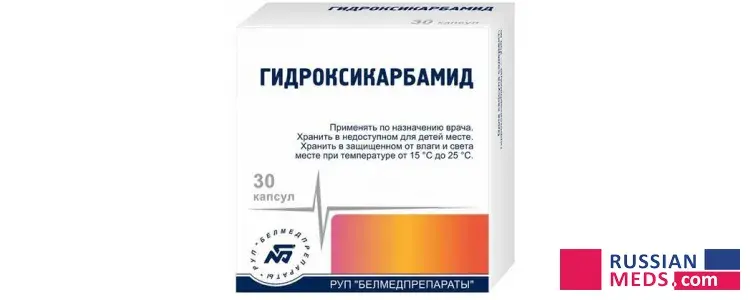
Hydroxycarbamide
Hydroxycarbamide is an oral medication primarily used for the treatment of certain types of cancer, including chronic myelogenous leukemia and head and neck cancer. It is also effective in managing sickle cell anemia by reducing the frequency of painful crises and the need for blood transfusions. The drug works by inhibiting the synthesis of DNA, thereby slowing down or stopping the growth of cancer cells. Hydroxycarbamide is typically administered in capsule form, making it convenient for patients to incorporate into their treatment regimen. The medication is often part of a comprehensive chemotherapy plan, tailored to the specific needs of each patient. It is important to follow the prescribed dosage to ensure optimal effectiveness.Active substance:
HydroxycarbamidePharmachologic effect:
Hydroxycarbamide is an antineoplastic agent that works by inhibiting DNA synthesis, thereby preventing the growth and proliferation of cancer cells.Indications:
- Chronic myeloid leukemia
- Polycythemia vera
- Essential thrombocythemia
- Sickle cell anemia
Contraindications:
- Hypersensitivity to hydroxycarbamide
- Severe bone marrow suppression
- Pregnancy and breastfeeding
- Severe renal impairment
Side effects:
In order of decreasing probability: Bone marrow suppression, Nausea, Vomiting, Diarrhea, Anorexia, Mucositis, Skin rash, Hyperpigmentation, Alopecia, Fever
Dosing and Administration:
The recommended dose of hydroxycarbamide varies depending on the condition being treated. For chronic myeloid leukemia, the usual starting dose is 20-30 mg/kg/day as a single dose. For sickle cell anemia, the typical dose is 15 mg/kg/day. Dosage should be adjusted based on patient response and tolerance.
Storage:
Store at a temperature not exceeding 25°C (77°F).
Hydroxycarbamide
in Cyrillic : Гидроксикарбамид
SUBSTANCE
Hydroxycarbamide
DOSAGE FORM
capsules

